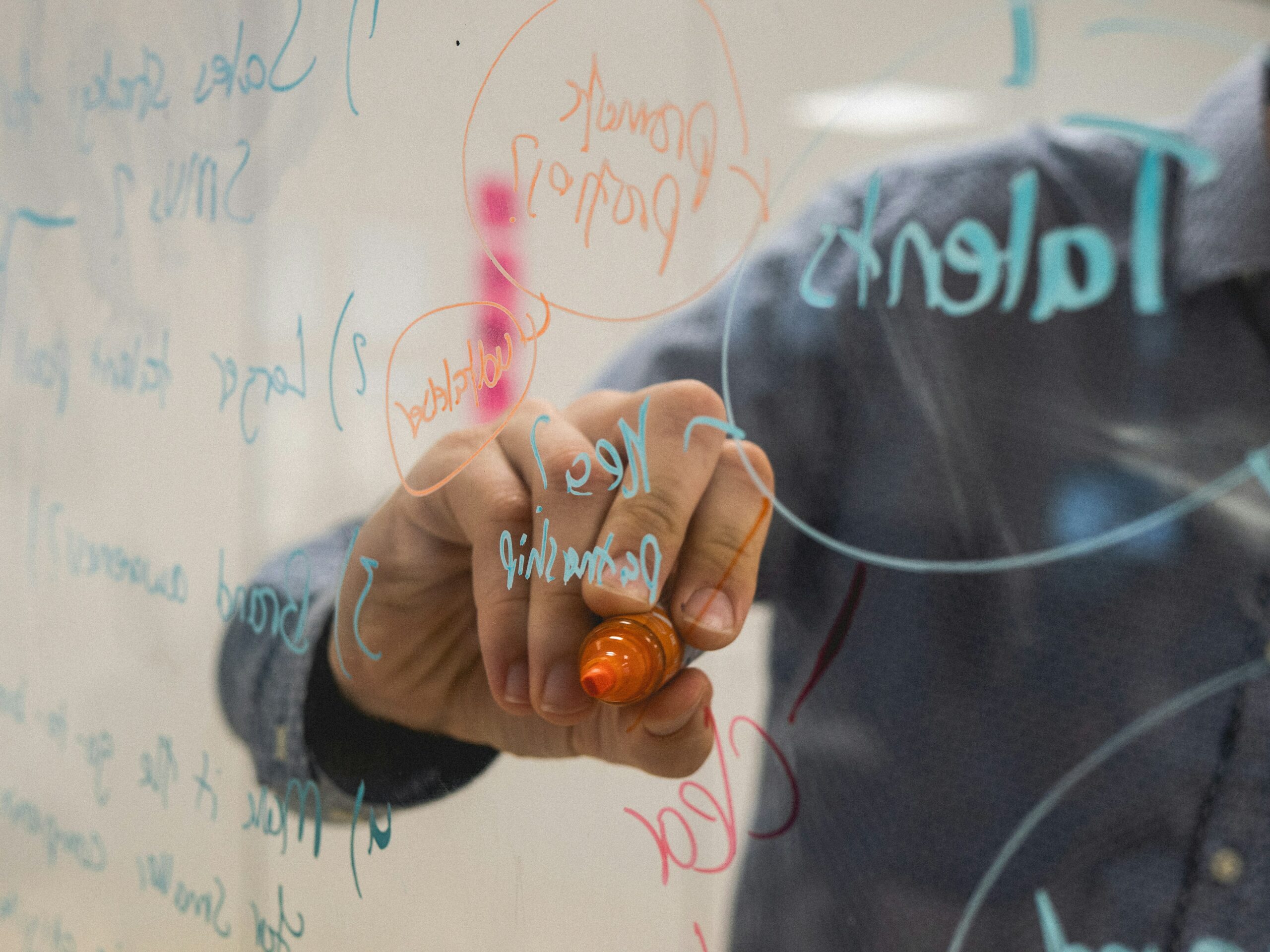“I’ve missed more than 9,000 shots in my career. I’ve lost almost 300 games. Twenty-six times I’ve been trusted to take the game-winning shot and missed. I’ve failed over and over and over again in my life. And that is why I succeed.” – Michael Jordan
This article suggests that Boards of Directors and CEOs should embed impact assessment into organisational culture, not as a setback, but as a tool for iterative improvements and a catalyst for excellence. In business, failures can be either unpreventable or preventable. When an organisation ventures into new territory with limited knowledge and high levels of uncertainty, unpreventable failures are to be expected – and indeed, are common. As Thomas A. Edison – inventor of the electric light bulb and holder of over 1,000 patents – is often quoted as saying: ‘I have not failed. I have just found ten thousand ways that won’t work’.
However, most failures, especially in the corporate, public, and civil society sectors are preventable. These failures result from repeated mistakes in contexts where well-established knowledge exists and the level of uncertainty is low to moderate. They occur when impact assessments are not regularly conducted, when leadership decisions go unchallenged and when employees do not feel safe to share ideas, voice concerns, admit mistakes, or offer alternative perspectives. In these environments simple issues can easily turn into mistakes, and mistakes into preventable failures – and failures into profit loss, accusation, criticism, blame, and shame. More or less, all preventable.
Impact Assessment
“In God we trust; everyone else must bring data,” said W.E. Deming, underscoring the vital role of impact assessment i.e. collecting data and evidence in recognising successes and preventing failure. When carried out internally – within environments shaped by hierarchy, fear of losing face, and performance-linked incentives – impact assessments often rely on weak methodologies, biased KPIs, and limited data. This can result in desirable findings, flawed decisions and missed opportunities for learning. By contrast, well-designed external impact assessments highlight both strengths and weaknesses and support iterative improvement by identifying success factors and determining whether mistakes and failures stem from individuals, internal processes, or external influences.
Major global banks such as ING, UBS, and BBVA participate in the Banking for Impact (BFI) initiative, conducting iterative assessments to identify where their activities have the greatest impact and where performance can be improved. These insights inform strategic adjustments in portfolio management, risk oversight, and internal processes, helping to optimise both financial returns and societal outcomes. Apple regularly commissions external social and environmental impact assessments to evaluate working conditions, environmental practices, and product life-cycle impacts. Findings from these assessments have led to iterative redesigns of products and supply chain improvements. Similarly, General Electric (GE) integrates external impact assessments within its Six Sigma and Lean initiatives to identify whether challenges originate from internal workflows, employee behaviors, or external market dynamics, enabling GE to adapt rapidly.
These are just a few examples of organisations that recognise impact assessment as a vital opportunity to identify and address issues before they escalate, something essential for the efficiency, productivity, and growth of any forward-looking, resilient organisation.
Impact Assessment and Systems Thinking
Regardless of whether an industry is more or less failure-prone or whether the organisation operates in the public, corporate, or social sectors, adopting systems thinking is key to preventing failures. It shifts focus from isolated errors and blame to understanding the broader organisational systems behind them. By using impact assessments to evaluate interconnected processes and outcomes, Boards and CEOs gain clearer insights into the root causes of both success and failure, enabling continuous learning and iterative improvement.
Despite operating in a culture where failure is often stigmatised, Toyota’s Production System (TPS) stands as a globally renowned example of systems thinking that has significantly enhanced operational efficiency and profitability. Its success stems from an organisational culture that embraces failure as an opportunity for learning and encourages collective problem-solving. By consistently asking, “What didn’t go well, and how can we improve?”, Toyota views impact assessment, decision-making and production as an interconnected system, enabling root-cause analysis, waste reduction, streamlined workflows, and continuous quality improvement. While exact revenue increases from TPS alone are not routinely quantified in public financial statements, Toyota’s global revenue has increased from around $50 billion in the early 1990s to well over $250 billion in recent years, with its systems thinking being a core enabler of this growth.
Early incentives in Uber were purely rewarding the number of completed rides which led drivers to take shorter, potentially unsafe routes risking quality and safety. After conducting assessments among customers, Uber revamped its organizational goals and incentives to include customer ratings and safety metrics, thereby incentivizing safer, higher-quality service that boosted client loyalty and increased revenue. In Q1 2025, Uber reported total revenue of $11.53 billion, a 13.8% increase compared to the same period in 2024. Mobility revenue rose by 15% and delivery revenue increased by 18%.
Impact Assessment and Psychological Safety
Creating psychological safety, where employees feel safe to share ideas, admit mistakes, and raise concerns, is key to preventing failures. When leaders actively seek feedback and model openness, they foster trust and early issue reporting. This shifts the culture from blame to learning, helping organisations address problems before they escalate into inefficiencies or avoidable failures.
Even in organisations where the culture does not fully embrace psychological safety, external and independent impact assessments offer a secure channel for honest feedback, free from internal pressures or fear of reprisal. This impartiality ensures an accurate identification of both strengths and weaknesses, irrespective of any cultural constraints within the organisation. For example, in high-risk sector like oil and gas, Shell promotes psychological safety through mental health initiatives and open communication training, helping workers report near misses without fear. In finance, Skandinaviska Enskilda Banken (SEB) boosted employee engagement and retention as well as revenue by 25% after fostering honesty and openness among staff. In healthcare, the Good Catch Campaign led to a 47% rise in near-miss reporting across 45 hospitals in the US, improving patient safety.
Psychological safety complements systems thinking by encouraging open reporting of mistakes, revealing how interconnected processes contribute to issues. This enables iterative improvements across the organisation. As Amy Edmondson, author of The Right Kind of Wrong, notes, it helps avoid “failing the failure” i.e. not learning from mistakes.
What About Accountability? How Do We Ensure Consequences for Failure are Faced, in Order to Avoid an Overly Lax Culture?
Accountability starts with the Boards and CEOs, who should model a culture where high performance is balanced with a constructive approach to impact assessment and the identification of failure. This goes beyond statements, and it requires embedding these values into policies, systems, and performance management. HR plays a key role by training leaders and staff, fostering learning from mistakes, and ensuring fair performance appraisal that rewards learning and improvement, not just seemingly flawless execution that contributes to short-term goals. Through systemic feedback loops and aligned accountability standards, organisations can replace blame with improvement, reinforcing both performance and resilience.
For any organisation that is truly situation-aware and focused on future-proofing its business, impact assessment, alongside systems thinking and psychological safety, is fundamental. After all, to err is human, but to prevent failure is divine.
About the Author
Dr Jasmina Kuka, CEO and Founder of W!SE, brings over 20 years of global experience in assessing and evaluating educational, cultural, and social programmes. Based in her beloved Malaysia, she has conducted numerous impact assessments of programmes implemented in over 30 countries across four continents. She has delivered analyses that have been used to inform effective funding policies, revisit goals and priorities, and provide evidence for more effective decision-making.
The article was shared by Dr Jasmina Kuka.
Photo by ThisisEngineering on Unsplash.

 5.0
5.0 





















